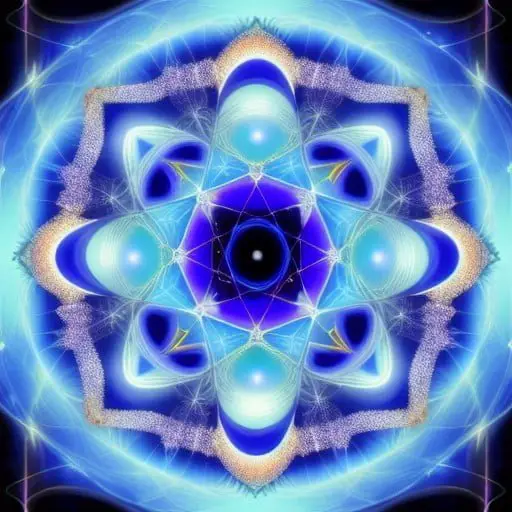Vedanta & Quantum Mechanics: A Synergistic Connection
In the modern era, there has been an increase in the number of people who are seeking spiritual connection and understanding. This has led to a significant increase in interest in ancient spiritual practices such as Vedanta and quantum mechanics, which provide different ways of viewing the world and understanding our place in it. However, despite their differences, these two seemingly separate disciplines share some fundamental similarities, which form a harmonious and synergistic connection.
Vedanta and Quantum Mechanics: A Bridge Between Science and Spirituality
Vedanta is an ancient spiritual philosophy from India that emphasizes the interconnectedness of everything in the universe. It is based on the principle that we are all one and that the separation we perceive between ourselves and others is an illusion. The philosophy of Vedanta has been around for thousands of years and has influenced many other spiritual and philosophical schools of thought.
Quantum mechanics, on the other hand, is a branch of physics that deals with the behavior of matter and energy at a subatomic level. It is a relatively new field of study that has revolutionized our understanding of the universe and how it works. Quantum mechanics has challenged many of the assumptions that we have held about the nature of reality and has provided us with a new way of looking at the world.
Despite their differences, Vedanta and quantum mechanics share a fundamental similarity: they both emphasize the interconnectedness of everything in the universe. Vedanta speaks of the oneness of all things, while quantum mechanics shows us that everything in the universe is connected on a subatomic level. This connection between the two disciplines has led many to believe that they provide a bridge between science and spirituality.
The Philosophy of Oneness and the Quantum Nature of Reality
At the heart of Vedanta is the philosophy of oneness. This philosophy teaches that everything in the universe is part of an interconnected whole, and that the separation we perceive between ourselves and others is an illusion. According to Vedanta, the true nature of reality is unity.
Quantum mechanics, on the other hand, shows us that the universe is inherently interconnected at a subatomic level. Particles that are separated by vast distances can influence each other instantaneously, and the behavior of one particle can affect the behavior of another particle, even if they are light-years apart. This phenomenon is known as entanglement, and it is at the heart of quantum mechanics.
The philosophy of oneness and the quantum nature of reality have many implications for our understanding of the universe and our place in it. For example, they suggest that we are all connected on a fundamental level, and that the separation we perceive between ourselves and others is an illusion. They also suggest that the universe is not a collection of separate parts, but rather a unified whole.
Furthermore, the principles of Vedanta and quantum mechanics suggest that our thoughts and emotions can have a profound impact on the world around us. According to Vedanta, our thoughts and emotions shape our reality, while quantum mechanics shows us that the observation of a particle can affect its behavior. This suggests that our thoughts and emotions have the power to shape the world around us.
In conclusion, the connection between Vedanta and quantum mechanics provides a bridge between science and spirituality, showing us that the separation we perceive between these fields is an illusion. The philosophy of oneness and the quantum nature of reality provide us with a new way of looking at the world, one that emphasizes the interconnectedness of everything in the universe. This connection has the potential to revolutionize our understanding of the universe and our place in it, providing us with a new way of living in harmony with the world around us.
The below article takes the topic on it’s head

